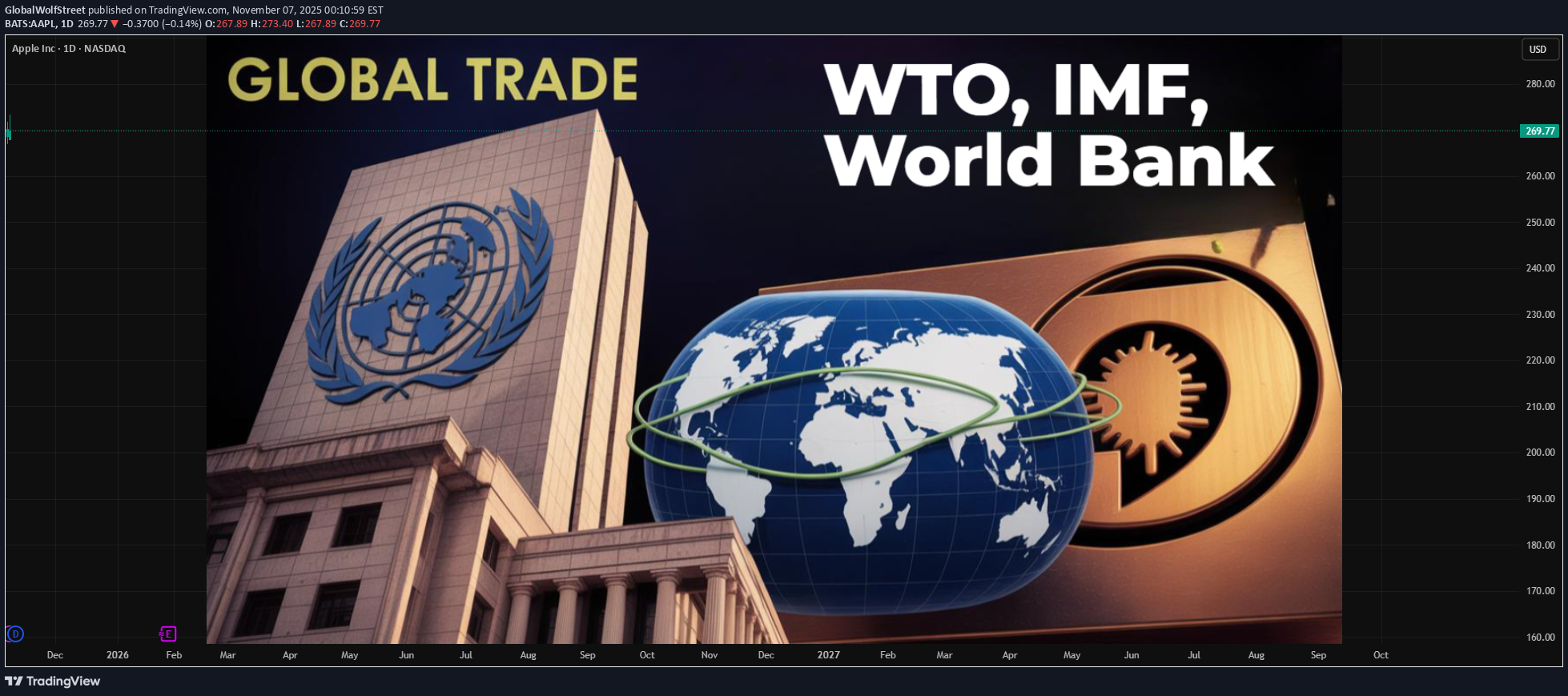تحليل التحليل الفني GlobalWolfStreet حول AAPLX في رمز في 7/11/2025
نقش سازمان تجارت جهانی، صندوق بینالمللی پول و بانک جهانی در اقتصاد جهانی

1. The World Trade Organization (WTO): Guardian of Global Trade Rules The WTO, established in 1995 as the successor to the General Agreement on Tariffs and Trade (GATT), is the central body overseeing international trade rules. Its main purpose is to ensure that trade flows as smoothly, predictably, and freely as possible among member nations. a. Promoting Free and Fair Trade The WTO works to eliminate trade barriers such as tariffs, quotas, and subsidies that distort competition. It encourages member countries to open up their markets and engage in fair competition. By doing so, it promotes economic efficiency, consumer choice, and technological advancement. b. Trade Negotiations The organization provides a platform where member nations negotiate trade agreements. These negotiations cover a wide range of areas including goods, services, intellectual property, and agriculture. One of the most notable negotiation rounds was the Doha Development Round, which aimed to address trade imbalances between developed and developing countries. c. Dispute Settlement Mechanism A major strength of the WTO lies in its dispute settlement body (DSB). When countries violate trade rules or engage in unfair practices, affected members can file complaints. The DSB then provides a legal framework to resolve disputes through consultations, panels, and appeals, preventing trade conflicts from escalating into political tensions. d. Monitoring and Transparency The WTO also monitors trade policies of member nations to ensure transparency. Regular reviews under the Trade Policy Review Mechanism (TPRM) help identify potential violations and encourage best practices. e. Support for Developing Nations Recognizing the challenges faced by developing and least-developed countries (LDCs), the WTO offers technical assistance and capacity-building programs. These initiatives help such nations integrate better into the global trading system. In essence, the WTO acts as the referee of global trade—setting rules, resolving conflicts, and ensuring that trade remains fair and transparent. 2. The International Monetary Fund (IMF): Stabilizing Global Economies While the WTO focuses on trade rules, the IMF ensures that global financial systems remain stable enough to support trade. Created in 1944 during the Bretton Woods Conference, the IMF’s primary goal is to maintain international monetary cooperation and financial stability. a. Promoting Exchange Rate Stability Stable exchange rates are vital for smooth global trade. Fluctuations in currency values can create uncertainty for exporters and importers. The IMF monitors exchange rate policies of its members and offers advice to prevent competitive devaluations that can harm global trade flows. b. Providing Financial Assistance Countries sometimes face balance of payments crises—when they cannot pay for imports or service foreign debt. The IMF provides short- and medium-term loans to help stabilize their economies. These loans often come with reform conditions aimed at improving fiscal discipline, reducing inflation, and restoring investor confidence. c. Policy Advice and Surveillance Through its Article IV consultations, the IMF regularly reviews member countries’ economic policies. This surveillance helps detect potential risks early and guides countries toward sound economic management. For example, the IMF has played a crucial role in guiding nations through financial crises such as the Asian Financial Crisis (1997) and the Global Financial Crisis (2008). d. Capacity Development The IMF assists countries in building strong institutions for monetary policy, taxation, and financial regulation. Through technical training and policy advice, it strengthens countries’ ability to manage economic shocks and engage more effectively in global trade. e. Supporting Global Financial Cooperation The IMF serves as a forum for global monetary cooperation. It brings together 190+ member countries to discuss international financial stability, thereby preventing unilateral actions that could disrupt global markets. In short, the IMF acts as the world’s financial watchdog—ensuring that countries maintain macroeconomic stability, which in turn supports smoother and more predictable global trade. 3. The World Bank: Financing Development for Trade Growth The World Bank, also established in 1944, complements the IMF by focusing on long-term economic development and poverty reduction. It plays a key role in helping countries build the infrastructure and institutions needed for effective participation in global trade. a. Financing Development Projects The World Bank provides low-interest loans, grants, and credits to developing countries for projects in infrastructure, education, healthcare, energy, and agriculture. Infrastructure such as ports, roads, and telecommunications directly supports trade by improving connectivity and reducing logistics costs. b. Encouraging Private Investment Through its affiliate, the International Finance Corporation (IFC), the World Bank promotes private sector development by offering investment and advisory services. This helps attract foreign investment, create jobs, and strengthen export capabilities. c. Policy Advice and Institutional Reform The World Bank offers expertise in designing policies that promote trade competitiveness, good governance, and efficient resource allocation. It also encourages structural reforms—such as liberalizing trade policies and improving business environments—to help nations integrate into global markets. d. Poverty Reduction and Inclusive Growth Trade alone cannot guarantee equitable growth. The World Bank ensures that the benefits of globalization reach vulnerable populations by funding programs in education, healthcare, and social protection. These initiatives build human capital, making countries more resilient and competitive in international trade. e. Global Partnerships and Knowledge Sharing The World Bank also acts as a knowledge hub—sharing best practices and research on development and trade-related issues. Its global partnerships with regional banks, the WTO, and the IMF enhance coordination and ensure a holistic approach to economic development. In essence, the World Bank provides the financial and developmental foundation upon which global trade can thrive. 4. Interconnected Roles: A Cooperative Framework While the WTO, IMF, and World Bank have different mandates, they often work together to achieve common goals: WTO sets and enforces trade rules. IMF ensures monetary and financial stability. World Bank promotes development and infrastructure for trade. For example, during global crises—such as the 2008 financial collapse or the COVID-19 pandemic—these institutions coordinated efforts to support economies. The IMF provided liquidity and macroeconomic stability, the World Bank funded recovery and health initiatives, and the WTO advocated against protectionism to keep trade flowing. 5. Criticisms and Challenges Despite their contributions, these institutions face criticism. The WTO is often accused of favoring developed countries and being slow to reform trade rules that disadvantage poorer nations. The IMF has been criticized for imposing strict austerity conditions on loans, which can harm social welfare. The World Bank has faced backlash for funding projects with environmental or social consequences. Moreover, rising protectionism, trade wars, and global inequality present new challenges that require these institutions to adapt and modernize their policies. 6. Conclusion The WTO, IMF, and World Bank form the backbone of the global economic order. Together, they promote fair trade, financial stability, and sustainable development—key pillars of a prosperous global economy. While their roles differ—rule-making, stabilizing, and financing—they are interdependent and complementary. As globalization continues to evolve, these institutions must work collectively to address new issues such as digital trade, climate change, and inequality. Their continued cooperation will determine not only the stability of international trade but also the economic well-being of nations across the world. In summary, the WTO ensures fairness in trade, the IMF safeguards financial stability, and the World Bank empowers nations to grow—forming a triad that underpins global economic progress.
